Musical Performance and Interpretation
Research in musical performance and interpretation covers the entire musical field, regardless of genre or mode of expression. One common denominator is that the research is methodologically integrated with musical performance and interpretation and cannot be carried out without a musical practice. Research explores questions about music and sound creation and musical practice, as well as how musical performance and interpretation are connected to and can express societal phenomena in general.
Researchers use theories and methods from the artistic area and from social sciences, humanities and engineering and technology. At the Academy of Music and Drama, research is conducted in many different areas including improvisation, composition and musical interpretation. Research projects that exceed or do not fit into these categories are increasingly common, as are projects that unite different artistic forms of expression and research disciplines. Research in musical performance and interpretation has a relatively long tradition at the Academy of Music and Drama, with roots in musicology with a creative artistic orientation. The Academy of Music and Drama has a close connection to the activities within what was previously known as the Göteborg Organ Art Center (GOArt). The Lindblad Studio offers an advanced experimental and laboratory setting for research in sound and media.
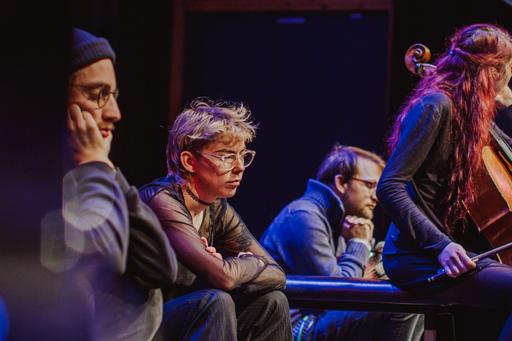
Background
As early as 1979, there were “plans for graduate education for artistic research and development” in Gothenburg. It was proposed there that the “dissertation” could be replaced with “a presentation of a product, such as a record, a sculpture, etc. together with a written description of how the product was created” (Edling 2009, p. 20). Thanks to the unique departmental solidarity between the School of Music and the Department of Musicology at the University of Gothenburg from 1984–1997, a third-cycle program was developed in the borderland between traditional musicology and practical musicianship. This Artistic Creative Third-cycle Program (Konstnärligt Kreativa Forskarutbildning, KKFU) used both recognised scholarly methods and artistic practices. The dissertations that were produced tended towards a research tradition stemming from the humanities’ perspective, but in which the tools had been adapted to the artist’s questions and problem complex. These projects were often historically oriented and connected to interpretive questions. They demonstrated the possibility of acknowledging and using subjective aspects and experiences in a research project. In 2000, the Artistic Faculty at the University of Gothenburg was granted the right to award the degree of doctor of philosophy in artistic research and the first doctoral student was admitted to the faculty’s graduate school. More and more dissertations now researched personal artistic practices, for example through theoretically articulating the musical knowledge found in doing, in presentation, and in musical processes. After this initial phase, research in musical performance and interpretation is now an established part of the research community in close interaction with artistic practice and in dialogue with other research areas.
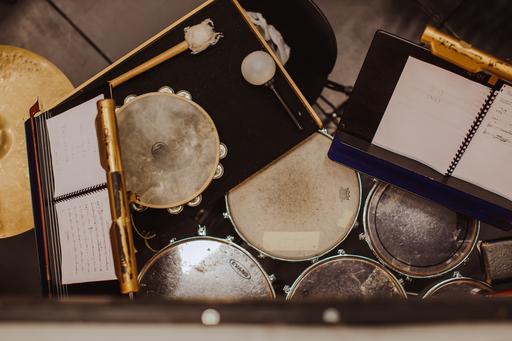
Description of the environment
Artistic research in musical performance and interpretation at the Academy of Music and Drama is conducted both in the form of/through senior research (both internally and externally funded) and through doctoral and post-doc projects. Collaborative projects dominate senior research, while doctoral projects are usually conducted individually. Artistic development projects in music give the academic staff at the Academy of Music and Drama an opportunity for research-focused or research-like practices in project format.
Addressed issues include such areas as musical processes, how musical performance and interpretation are connected to society in general, and epistemological questions that lead to an expanded and deepened view of knowledge. Among both ongoing dissertation projects and senior research, there is a focus on both expanding and conceptualising the understanding of materials, methods and techniques. There is significant interest in experimental expressions and sound creation, partly in interaction with other artistic specialisations. The Lindblad Studio offers an advanced experimental and laboratory research and educational setting that facilitates an exploration of questions about instrument and material research, acoustics, music technology, sound synthesis, computer-aided composition and information technology.
The research also aims to broaden and develop questions about our urban sound environment and to explore the social and political ramifications of the urban soundscape and other sound environments. Research on historic organs and other keyboard instruments is another key area through proximity to the earlier research centre, the Göteborg Organ Art Center (GOArt), and the background in historic interpretive research. Even so, a division is still discernible between the subject areas of improvisation, composition and interpretation/musical performance, even if many projects run counter to these categories or challenge, renegotiate and problematise them.
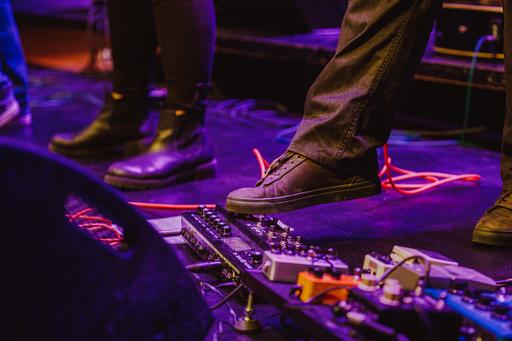
Methods
The methodology is practice-based: research methods often involve artistic experiments or staging, or they use explorative forms through music creation, combined with meta-reflections. Methods that are connected to other established research in technology, pedagogy, psychology or musicology are also common, as are case studies, observations, source studies, quantitative methods/measurements, data compilation and different forms of writing. We view method development as a dynamic process that is strongly connected to an expanded and deepened theoretical understanding of the field of artistic research. The research projects often use theory formation inspired by philosophy, general literary studies, gender theory, critical theory or pedagogy. More recently, such theories as performative theory, new materialism and theories on intersectionality have been given more space.
Increased contact with other artistic fields provides access to broadened concepts and a widened understanding. While contact with musical theatre has always been strong, there is now also close contact with performance art, free art and new media, for example. Senior research is often conducted via cross-disciplinary collaborations with researchers in the humanities and social sciences, educational sciences, natural sciences and technology, medicine and health, for example. The artistic music researchers at the Academy of Music and Drama are practicing musicians/tonal artists, and they use their experience to choose and formulate research questions. This results in critical innovation and different research questions from the ones in other musical research.
Our ambition is for research to be relevant to musical life overall, to higher education in music and to society in general through renewal in musical creation and deepened insights into music as a social phenomenon and expression. With musical performance and interpretation as a research method, alternative perspectives and forms can be clarified and new tools created for an understanding of our era, our relationships to other people and our surrounding world. Research in musical performance and interpretation can articulate the ability of art to critique both artistic and other scholarly experiences.
From the Swedish Research Council’s 2014 Overview of Artistic Research:
Research is conducted through artistic work, supported by investigative methods and the formation of theories, all of which may also be drawn from other areas of research. The purpose is often to highlight artistic production and knowledge processes, questions pertaining to the expression of the art, its terms and sensory, narrative and performative aspects of art. This research involves contextualizing artistic projects and developing research methods and theories, and interactions with materials, history and society. […]
Artistic research is thus of very high and growing relevance to (1) artistic practices in society; (2) artistic education; (3) business and society in a wider sense; and (4) the research establishment, where artistic research can help to develop multidisciplinary themes and methodologies. Artistic research also has particular potential to lend more depth to discussions on quality, expanded concepts of knowledge, and forms of publication and communication.
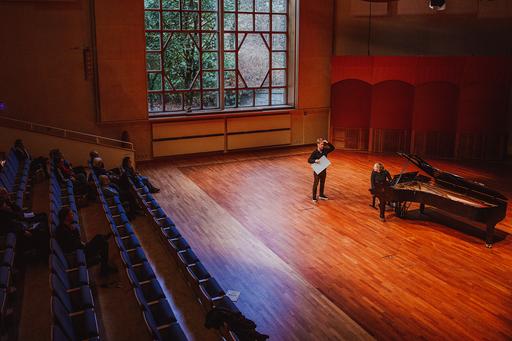
Presentation forms
Artistic research problematises the forms used thus far to report results and present research, and it experiments with and develops new forms with more modes that differ from verbal text. Research in musical performance and interpretation has always been presented through text as well as music, through scores and/or sound via music played in concert and in urban or other environments or recorded on CD. Today’s technical development has enabled communication and dissemination with multiple modalities, which creates conditions to convey deeper knowledge and insights into new, more suitable methods. One example of a new presentation form is the Audio Paper, an expansion of the traditional paper presentation format in the form of a sound production. An audio paper is a performative presentation combining intellectual arguments, affective understanding and sonic aesthetics through a creative approach to communication.
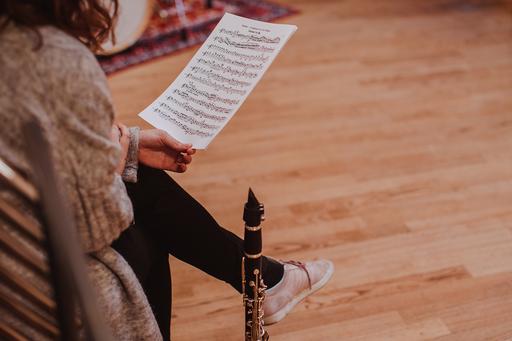
Challenges and initiatives
Our goal is to maintain and develop a strong and solid research environment at the Academy of Music and Drama with post doctoral projects, senior research and doctoral projects. A stable environment will also allow us to contribute to strengthening career pathways for young researchers in the subject. Collaboration between senior projects and doctoral projects promotes subject depth and high, subject-specific quality. One key factor is an increased share of research that works thematically across subject borders and increased interaction with other research areas. Interdisciplinary problem complexes and hybrid research forms produce expanded possibilities for knowledge production. Contact with other research areas and research teams containing different skills develop and broaden research methodology and methodological pluralism. With this approach, we can expand the concept of musical arts, continue to deepen subject-specific research, and develop artistic research as a whole.
Collaboration
Researchers at the Academy of Music and Drama work actively within the National Network for Artistic Research in Music to strengthen the field of research and build a discourse in which methods and results can be formulated in such a way that creates a deeper understanding of the possibilities and functions of artistic research. The Academy of Music and Drama also has a close collaboration with the work of the previous Göteborg Organ Art Center (GOArt) which pursues interpretive research based on the interaction between the musician and music through the instrument. We also have a close relationship with the Swedish Society for Musicology. Internationally, Sweden, Belgium, the Netherlands and the other Scandinavian countries are at the leading edge of research in musical performance and interpretation.
The research subject is growing rapidly and increasing the number of international collaborations therefore has high priority.
Edling, M. (2009). “Artistic research and development in Sweden 1977–2008. Reflections on a history that appears to be repeating itself.” Swedish Research Council yearbook 2009.